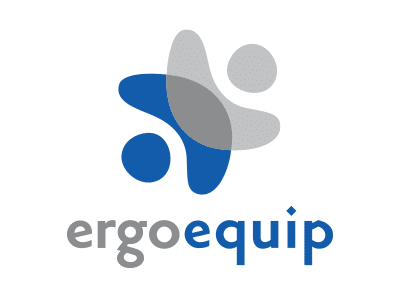What Would Happen if We Swapped the 8-hour Day for 6?

Limiting the typical workday to 8 hours was a boon for workers during the 20th-century Industrial Revolution, whereby organisations could demand factory workers toil for up to 16 hours a day and child-labour was rife. More than 100 years on, statistics are showing it may be time for an overall of the 40-hour week.
The fact that 8-hour workdays were established in response to such draconian practices means the 40-hour week is passed its use-by date. The introduction of the internet and modern agile work practices have drastically changed the employment landscape and the imminent death knell of the ‘9 to 5’ paradigm is heralding a review of the number of hours employees are on duty per day.
Adding fuel to this fire are the increases in applications for employee stress leave, rapid staff turnover and declining rates in general health of the average worker.
The magic number being tossed around by university professors, business leaders and global thinkers alike is 6 hours of work per day, which they say is not only better for you but better for your company, as well.
Time-Wasting at Work
Most employees can attest that the length of time spent in the work environment doesn’t always equal greater productivity.
How many times have your staff members frittered away time surfing the net rather than tackling a large project or walked to the water cooler one too many times in an attempt to avoid a looming deadline?
Workers in modern offices can waste up to 3 hours a day on reading news websites, checking social media, office gossip and, in fact, searching for more appealing jobs.
“In most jobs, people would get more done in six focussed hours than eight unfocussed hours,” says Adam Grant, American author and organisational psychologist.
Go With The Flow
Grants adds that that the more complex and creative the job is, the less important clock-watching becomes, as these roles are more organic in their approaches. Reports have been conducted that found top executives are 500% more productive when they’re in a state of “flow”, ie. immersed in “the zone”, whereby they’re not interrupted and the project has their full attention.
One element of the modern workday that disrupts ‘flow’ is the counter-productive expectation on staff availability. Employees are being constantly disrupted from their tasks, responding to inbox and mobile phone alerts, yet are expected to perform in meetings, deliver results and meet deadlines.
Statistics have shown that the average office worker is interrupted every 3 minutes then it takes them a further 23 minutes to refocus on the task they were working on.
Health Goes Out The Window
After a long slog at work many people are too tired to put much thought into making dinners and further increase their carbon footprint by opting for takeaways over healthy home-cooked meals. The negative effects of scoffing down high-fat, vitamin-deficient food over time can diminish your zest for life by resulting in increased weightgain, lower focus, reduced energy levels and can lead to more time off work due to illness.
Sweden’s Sweet Spot
Sweden gave the 6-hour workday a trial run and found the results were pretty much what you’d expect. The two-year study in the reduction of hours (but not salary) of a Swedish aged-care nursing facility in Gothenburg found that the staff were 20% happier and took 4.7% less sick leave, while their colleagues on 8 hours were putting in for 62.5% more sick days.
There was a massive boost in productivity at 64%, because staff had more energy at work. So not only was there an improved level of care for the patients in need, there was improved wellbeing for staff taking part in the control group.
The Swedes at Toyota also hopped on the 6-day hour bandwagon and tested this paradigm as far back as 2002. The results were… surprise! Happier staff, taking less time off, with a higher retention rate.
A Boost in Staff Satisfaction
A business that fosters positive workplace relationships is likely to gain more success than one that sliently expects their staff to work unpaid overtime and guilts workers about having time off during peak holiday periods, such as school holidays.
Think how much happier your staff could be if parents of school-aged children worked a 6-hour day to coincide with their kids’ schooldays! School pick-ups could be so much happier if your employees knew they’d clocked off for the day and could actually spend some quality time with their kids.
Flies in the Work Glass
Pressure is killing productivity in the modern workforce, with a whopping 73% of Aussie workers complaining of stress-related issues. By introducing a 6-hour workday week, your employees will have 10 less hours of work a week to worry about emails, deadlines and work expectations.
Spending too much time with colleagues has also been known to encourage a ‘hive-like’ mindset, whereby individual thinking suffers at the hands of the ‘group mentality’. Employees are likely to feel fresher when they spend less time with the same coworkers, which can lead to more individual ideas and strategies.
Staff are also less inclinced to make errors and are likely to be better engaged in their company and more supportive of a brand that represents a positive work environment.
Less Time at Work is Better for Business
Many people struggle with burnout by trying to fit too much into their weekends, rather than simply relaxing, because they’re burdened by long hours at the office from Monday to Friday.
Parents and spouses will try to cram in as many activities or events as they can when they’re not at work, often because they feel guilty. This can build resentment, which can lead to lower productivity throughout the day.
Work Smarter, Not Harder
Recent polling suggests that about 50% of workers aren’t happy with their current work-life balance. So, isn’t it time for a significant reappraisal of not only Australian, but global, work practices to assess the progressive impact of a 30-hour week on individuals and society in general?


